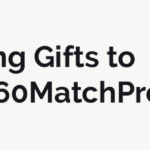
Shortly after releasing a scathing interim report in July that revealed how three players dominate the pharmacy benefit manager market and raise drug costs for patients, the Federal Trade Commission is turning its words into action.
Late last week, the agency sued the three largest PBMs — CVS Caremark, Express Scripts and Optum Rx — and their affiliated group purchasing organizations for “engaging in anticompetitive and unfair rebating practices” as it relates to insulin. For example, the PBMs use restrictive drug formularies to exclude some drugs from coverage, and demand high rebates from drug manufacturers to get their products on their formularies, the FTC argues. While the Inflation Reduction Act already caps monthly insulin out-of-pocket expenses at $35 for Medicare patients, this lawsuit aims to help everyone taking insulin.
In its administrative complaint, the FTC alleges that these practices violate the FTC Act, artificially inflate prices and make it more difficult for patients to access insulin.
Will the FTC be successful in its pursuit to reign in PBMs? According to one legal expert, that “depends on the momentum they maintain” moving forward.
“I will say that right now on the issue of insulin, the momentum favors the FTC,” said Lucas Morgan, partner in Frier Levitt’s Healthcare and Life Sciences groups, in an interview. “As far as I can tell, they have a lot of very detailed information and evidence to show exactly what [the PBMs] did and why it was problematic. … I would also say that they have the public support in their favor, because who isn’t going to be an advocate for lowering the cost of these types of medications that so many people rely on? Whether you’re a diabetic or not a diabetic, I think most people are going to side with patients over large corporations and their profits.”
What the complaint alleges
According to the complaint, insulin is the “poster child of [the PBMs’] broken drug pricing system.”
The complaint explains that diabetes is one of the most widespread diseases in the U.S., affecting more than 38 million Americans. For some Americans, insulin is the only way they can manage the disease.
The medications weren’t always unaffordable either. The average list price for commonly used insulin Humalog was just $21 in 1999, according to the complaint. In 2017, the price reached more than $274.
PBMs’ practices are largely to blame for this increase in insulin prices, the complaint alleges. CVS Caremark, Express Scripts and Optum Rx administer about 80% of all prescriptions in the U.S., and they have “significant influence over which drugs patients can access, and at what price.”
About a decade ago, the three PBMs created restrictive drug formularies (lists of preferred and non-preferred drugs) to exclude some medications from coverage, the FTC argued. This puts drug manufacturers at risk of not having their products covered for millions of Americans. PBMs “began demanding higher and higher rebates from drug manufacturers in exchange for placing those drugs on their restrictive formularies,” the complaint alleges.
The FTC noted that drug manufacturers aren’t blameless, and specifically called out insulin manufacturers Eli Lilly, Sanofi and Novo Nordisk. Because of the demand for larger rebates, drug manufacturers began to increase the list price of their drugs, “leading to artificially inflated list prices that are disconnected from the actual cost of the drugs to insurers,” the complaint states. Patients’ out-of-pocket expenses are often tied to these inflated prices, as uninsured patients might have to pay the full list price and insured patients with high-deductibles or coinsurance may experience costs based on the higher list price.
“Although not named in this case, all drug manufacturers should be on notice that their participation in the type of conduct challenged here can raise serious concerns, with a potential for significant consumer harm, and that the Bureau of Competition reserves the right to recommend naming drug manufacturers as defendants in any future enforcement actions over similar conduct,” said Rahul Rao, deputy director of the FTC Bureau of Competition, in a statement.
These issues go beyond insulin, according to the complaint.
“The Respondents’ demand for larger rebates has also inflated list prices for other critical drugs including treatments for autoimmune diseases and inflammatory conditions,” the complaint states. “Patients whose out-of-pocket costs are tied to these inflated list prices may spend hundreds of dollars per prescription. In some cases, the patient may pay more at the pharmacy counter than the actual cost to their commercial insurer. In other words, the insurer functionally makes a profit from the prescription, instead of paying its share of the cost. This turns the normal insurance model on its head with the sick subsidizing the healthy, rather than the other way around.”
A ‘baseless action’
As expected, the Big Three PBMs defended themselves against the FTC’s complaint.
“This baseless action demonstrates a profound misunderstanding of how drug pricing works,” said Elizabeth Hoff, an Optum Rx spokesperson. “For many years, Optum Rx has aggressively and successfully negotiated with drug manufacturers and taken additional actions to lower prescription insulin costs for our health plan customers and their members, who now pay an average of less than $18 per month for insulin.”
Cigna’s chief legal officer, Andrea Nelson, said the complaint “continues a troubling pattern from the FTC of unsubstantiated and ideologically-driven attacks on pharmacy benefit managers.” Express Scripts also recently filed a lawsuit against the FTC, demanding that the commission withdraw its interim report on PBMs released in July.
A spokesperson for CVS Caremark claimed that the company has “led the way” in driving down insulin costs, noting that its members usually pay less than $25 on average. The company also pointed the finger at drugmakers, stating that limiting PBM negotiating tools would reward the pharmaceutical industry.
“The FTC has missed the mark entirely. Not only is the FTC letting off the hook the drugmakers who historically hiked the price of insulin, last week’s announcement threatens to limit the country’s best counterweight against future drugmaker price gouging,” said David Whitrap, vice president of external affairs at CVS Health, in an email. “And the FTC is choosing to do so at a time when the American healthcare system is already grappling with how to pay for these same manufacturers’ most profitable drugs, the GLP-1s.”
Meanwhile, one national pharma lobby group said the complaint is “the latest evidence showing that PBMs use their control over the market to drive up patient costs and limit access.”
“Rebates and discounts have lowered list prices for the most commonly used insulins by 84%, yet PBMs use those savings in the system to boost their own profits rather than pass them along to patients,” said Nick McGee, DVP public affairs at PhRMA, in an email. “This move by the FTC just adds to the overwhelming echo chamber of support for reforms that will fix the misaligned incentives in the system and hold PBMs accountable.”
What could come out of this?
If successful in this lawsuit, the complaint notes that the commission could call for the following relief:
- Prohibit PBMs from excluding or disadvantaging lower wholesale acquisition cost (WAC) versions of high WAC drugs from the same manufacturers when the respondent includes the high WAC drug on a formulary
- Ban PBMs from taking compensation based on a drug’s list price
- Stop PBMs from designing benefit plans that base patients’ deductibles on the list price versus the net cost after rebates
“The FTC’s administrative action seeks to put an end to the Big Three PBMs’ exploitative conduct and marks an important step in fixing a broken system — a fix that could ripple beyond the insulin market and restore healthy competition to drive down drug prices for consumers,” Rao of the FTC said in a statement.
Morgan of Frier Levitt noted that this case will ultimately be heard by an administrative law judge versus a federal district court judge, which could bode well for the FTC.
“This is an administrative proceeding, as opposed to one that’s in federal district court. That is a venue that favors the FTC and the agency, as opposed to the PBMs and their GPOs,” he said. “That’s not to say that if the FTC were in court, they still couldn’t prove their case or that the PBMs and the GPOs aren’t capable of defending it in either venue. Agency proceedings tend to be more streamlined and tend to be a little more deferential to the agency.”
The FTC succeeding in this lawsuit is certainly an outcome that one pharmacy advocacy organization hopes for.
“It’s often left to the pharmacist to sort of be the insurance agent, if you will, for the patient when they come in and are told that their inhaler or their insulin is no longer on formulary,” said Matthew Seiler, general counsel for the National Community Pharmacists Association. “The pharmacist has to call an insurance company and try to get a generic or some other equivalent that is on formulary or that is cheaper, so that can take multiple calls, multiple hours of time, and sometimes pharmacists are not able to do that. … I’m hopeful that this action by the FTC will benefit a lot of patients and the pharmacists that are trying to serve patients as best they can.”
Patients for Affordable Drugs, an independent patient advocacy organization, would also like to see action taken against PBMs, but stressed that more is needed beyond that.
“Let’s be clear, this lawsuit is key but we cannot let drug manufacturers off the hook for their role in setting high list prices for life-saving medication like insulin,” urged Merith Basey, executive director of Patients for Affordable Drugs, in an email.
Photo: bong hyunjung, Getty Images
#FTC #Suing #PBMs #Insulin #Prices #Successful










